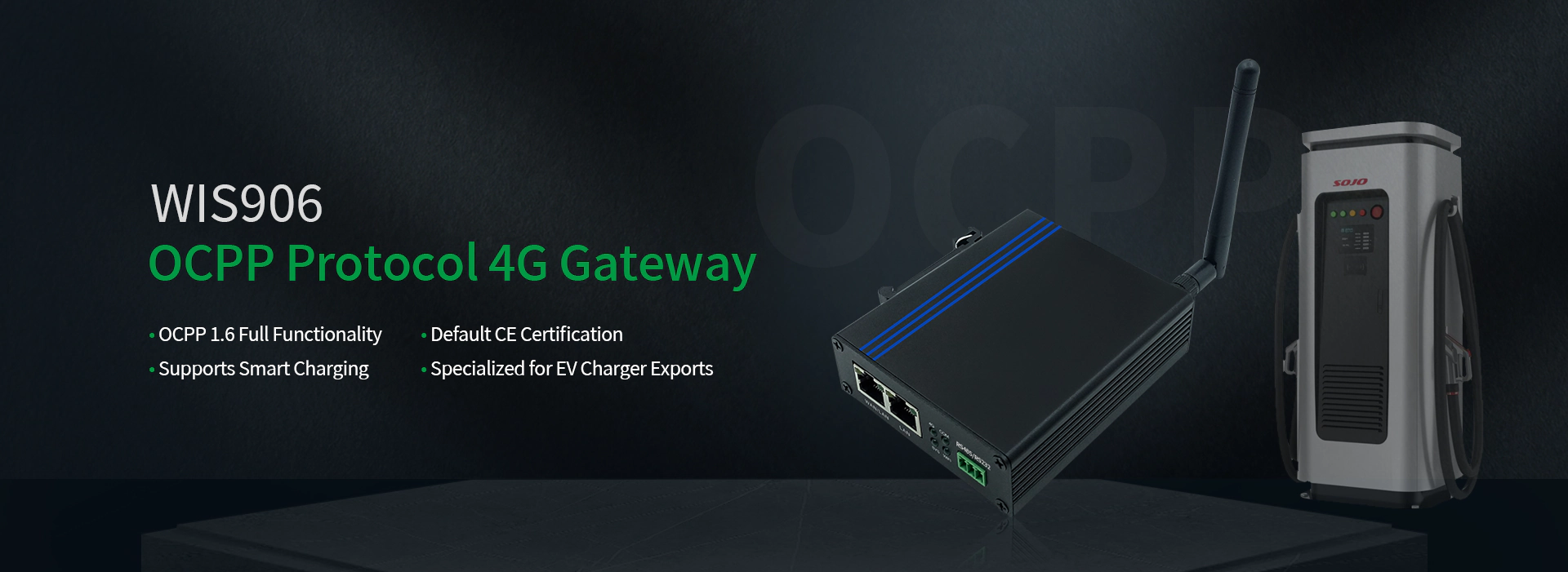
Router with charging station overseas
With the rapid growth of the global electric vehicle (EV) market, the construction of charging infrastructure is also accelerating. Particularly in the international market, the export of EV chargers has become a significant development direction for many manufacturers. However, in the process of internationalizing EV chargers, ensuring the stability and compatibility of the charging equipment is a challenge that cannot be overlooked. At this juncture, the application of OCPP (Open Charge Point Protocol) routers becomes particularly important. Huizhi Technology’s OCPP routers are designed to meet the demands of the times, helping you easily achieve the export of EV chargers.

What is an OCPP Router?
OCPP (Open Charge Point Protocol) is an open-source communication protocol for EV chargers, aimed at standardizing the communication between electric vehicle EV chargers and backend systems. It allows EV chargers to seamlessly interface with Charging Management Systems (CMS), enabling remote monitoring, control, and data management. An OCPP router is a device specifically designed to support this protocol, ensuring that EV chargers can reliably and stably exchange data and control commands with the backend system.
Advantages of OCPP Routers
1.Standardized Compatibility: OCPP routers conform to international standards, ensuring the compatibility of EV chargers across different countries and regions. This is a key factor for EV charger manufacturers looking to enter the international market.
2.Remote Management and Maintenance: With OCPP routers, EV chargers can achieve remote monitoring and management. Manufacturers can obtain real-time status information of EV chargers through the backend system, conduct fault diagnosis and maintenance, significantly reducing on-site maintenance costs and time.
3.Data Security: OCPP routers are typically equipped with advanced encryption technology to safeguard the security of data transmission between EV chargers and backend systems. This plays a crucial role in protecting user privacy and preventing data breaches.
4.Scalability and Upgradability: As technology evolves, the OCPP protocol is also continually advancing. OCPP routers support protocol upgrades and expansions, ensuring that EV chargers can adapt to future technological changes and demands.
How to Choose the Right OCPP Router?
When selecting an OCPP router, EV charger manufacturers should consider the following aspects:
1.Compatibility: Ensure that the router supports the latest version of the OCPP protocol and can effectively interface with both EV chargers and backend systems.
2.Stability and Performance: Choose routers with high stability and performance to ensure reliable operation of EV chargers in various environments.
3.Technical Support and Service: Opt for a router supplier that offers comprehensive technical support and after-sales service to provide timely assistance in case of issues.
4.Security: Ensure that the router is equipped with advanced security features to prevent data breaches and malicious attacks.
Conclusion
In the process of expanding into international markets, OCPP routers are not only a guarantee of technical compatibility but also a crucial tool for improving the operational efficiency of EV chargers. By selecting the right OCPP router, EV charger manufacturers can effectively address the challenges of different markets, achieve stable international operations, and contribute to the development of global electric vehicle charging infrastructure.